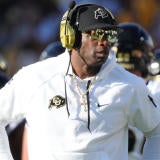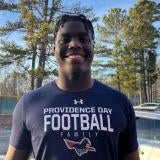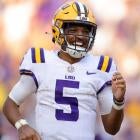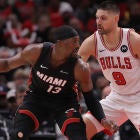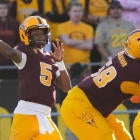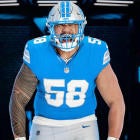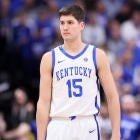The University of Miami will file Friday an unprecedented motion with the NCAA to dismiss the controversial two-year old case involving booster Nevin Shapiro, CBSSports.com has confirmed.
The request will account for recent revelations that the use of attorney Maria Elena Perez went beyond the scope of an external review commissioned by NCAA president Mark Emmert. The Miami Herald reported this week an NCAA investigator sought Perez to extract information from Shapiro's driver/bodyguard Mario Sanchez.
The Herald also reported this week this that NCAA investigators “lied to interview subjects.” The paper was the first media outlet to report Miami intended to file the motion.
A source close to the case told CBSSports.com that the filing will include new information regarding the NCAA's conduct during the case. It is not clear if and when the document will be released publicly. Miami is a private institution and not bound by federal guidelines regarding public release.
In a major case involving a high-profile university, the filing is considered unprecedented. Schools charged with major violations typically file their responses to allegations and appear before the NCAA infractions committee. Penalties, if any, are then handed out weeks or months later. However, "what the NCAA did was unprecedented," said a source with knowledge of the motion.
"There will be some stuff in there [the public] is already aware of. I would think there will be some other things in there that people are not yet aware of that [are] just as equally intriguing."
Miami was charged with lack of insitutional control by the NCAA on Feb. 20, 28 days after the association announced an external review of the case and two days after the NCAA's enforcement director was fired after the release of that review. The NCAA is aiming for a mid-June infractions committee hearing with Miami. The case came to light two years ago when Shapiro told Yahoo! Sports that he provided lavish extra benefits to Miami players and recruits.
On Feb. 20, Miami president Donna Shalala questioned the NCAA's investigation in a harshly worded statement that concluded: "We have suffered enough." She said the school should not penalized beyond self-imposed sanctions that have included a two-year bowl ban.
There really is no "mechanism" for a motion to dismiss a case such as this according to Dave Ridpath, an Ohio University associate professor who has been through two NCAA cases himself and his considered an expert witness having testified about NCAA matters on Capitol Hill.
However, Ridpath said that during the pre-conference hearing -- typically two weeks before the formal infractions committee hearing -- evidence could theoretically be thrown out.
"I’m not aware of that [ever] happening," Ridpath said. "I’ve never seen it thrown out on procedural greounds. But the NCAA has really been caught with their pants down since they’ve gone outside the process with Penn State. I would say, why not? The fact they’ve gone outside the process leaves other people open to do the exact same thing."
Another source with vast knowledge of the NCAA enforcement process said, it would be "totally appropriate" for an individual charged by the NCAA to have allegations dismissed. This case, however, was considered by many to be the most scandalous in history at the time broke in August 2011.
According to the Herald, the NCAA has told Miami that its infractions committee does not have the authority to dismiss the case. Miami officials contend that assertion according to the paper.
The request to dismiss comes at a time when the NCAA's investigative process has been under fire. Critics have questioned the association's jurisdiction in penalizing Penn State stemming from the Jerry Sandusky scandal. The NCAA is facing critical court rulings in the celebrated Ed O'Bannon case and a suit brought by former USC assistant Todd McNair.
The accused in the Miami case are currently inside a 90-day window to respond to the NCAA's notice of allegations. Lawyers representing parties in the case were subject to a separate Friday deadline to make any procedural motions "to determine if evidence that has not been excluded should be excluded," according to a source.
The deadline within the 90-day window was set by NCAA infractions committee chairman Britton Banowsky and is allowed according to bylaw citings provided by the association to CBSSports.com.
The NCAA threw out 20 percent of the evidence gathered in the case after it was discovered that Perez has been paid to use subpoena power to depose former Miami equipment staffer Sean Allen and Shapiro business partner Michael Huyghe. That NCAA relationship with Perez extended beyond those two subjects, the Herald reported this week. Investigator Stephanie Hannah pursued the use of Perez after taking over the Miami case for the fired Ameen Najjar.
The lawyer hired by the NCAA to review the initial improper use of Perez, Ken Wainstein, then told the Associated Press on Thursday multiple persons inside the association knew of the use of Perez in the Miami case. Wainstein explained them away saying NCAA officials knew of the “arrangement with Perez but did not realize the NCAA was paying” her.
Wainstein told CBSSports.com this week that Najjar's favorable letter to Shapiro's sentencing judge was "not central" to his investigation.








